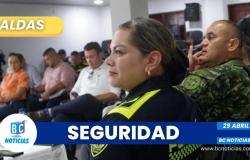Right now, while the world witnesses a genocide livestreamed on social media, Palestinians are still not treated as reliable narrators: They are accused of fabricating the numbers of their dead, of bombing their own hospitals, and of murdering one another via a stampede when they were shot by Israeli soldiers while waiting in line for flour. Even as parents write their children’s names on their bodies so they can be identified if they are bombed overnight, Palestinians are accused of using their babies as shields.
What would it mean, in this moment, to believe Palestinians when they speak? What would it mean if Palestinian warnings, based on generational experiential knowledge of Israeli state violence, were heeded? If, when Palestinians said, “This is not about Hamas—this is about land,” they were believed before Israel was threatening a ground invasion of Rafah, the last place for Palestinians to go, where an estimated 1.5 million Palestinians are sheltering.
✽
The first ask of the witness to a genocide, then, is the work of believing Palestinians when they speak.
This, I would argue, is a lifetime commitment to the work of reading: of anchoring oneself in the knowledge Palestinians have produced, of learning from Palestine, of taking in literature, narratives, and scholarship from Palestine and its diaspora as a daily practice. During the bombing campaign on Gaza in May 2021, hundreds of academics from around the world signed a pledge called “Palestine and Praxis: Scholars for Palestinian Freedom.” The signatories, myself included, committed to meaningfully engaging Palestinian scholarship in our classrooms, research, and institutions.
That public letter—like many statements circulating today—underscores: “pressuring our academic institutions… to respect the Palestinian call for Boycott, Divestment, and Sanctions of Israel” until it complies with international law; naming and resisting “complicity and partnership with military, academic, and legal institutions” that entrench Israel’s policies; “supporting student activism on campus”; “holding our universities accountable for violations of academic freedom”; and including Palestinian expertise on Palestine in our work—that is, turning to Palestinian studies to understand what we are witnessing.
The second ask is what Palestinian writer and clinical psychologist Hala Alyan describes of the witness, including the diasporic witness, to remain undistracted and undeterred.






